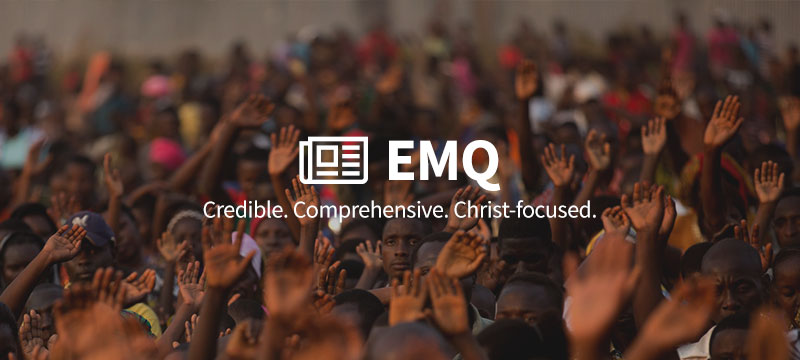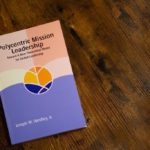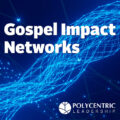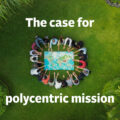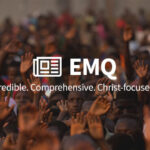EMQ » July–September 2023 » Volume 59 Issue 3
 Polycentric Mission Leadership: Toward a New Theoretical Model for Global Leadership
Polycentric Mission Leadership: Toward a New Theoretical Model for Global Leadership
By Joseph W. Handley, Jr.
Fortress Press, 2023
132 pages
Reviewed by Birgit Herppich, affiliate assistant professor of intercultural studies, Fuller Theological Seminary; international membership department coordinator, WEC International; and research scholar, Angelina Noble Center.

The complexities of World Christianity necessitate new models for leadership in international mission organizations. Based on his dissertation research and over 30 years of experience, since 2008 as President of Asian Access (now A3), Handley suggests polycentric mission leadership as a new theoretical leadership model for present global mission realities. This is “a collaborative, communal leadership empowering multiple centers of influence and a diverse array of leaders to meet today’s challenges” (https://polycentricleadership.com).
He employs research into polycentrism, mission history, mission and church organizations, movement theory, and governance, as well as interviews with 33 network leaders engaged in global ministry in the Lausanne Movement. The latter and Handley’s own extensive experience in global mission leadership make this an insightful and practical book.
Historically, Handley traces the development of mission history writing away from individual heroes to multifaceted movements, numerous actors, and a multitude of centers of Christianity and mission initiatives by building on the Munich School’s Polycentric Structures in the History of World Christianity. Missiologically, he follows Allan Yeh’s Polycentric Missiology and a trinitarian approach to mission and leadership.
Recent models of leadership support the case for polycentric leadership. These range from studies on polycentric governance and CEO leadership in many countries to the call for a leadership paradigm shift sounded by experienced mission leaders. Economic, organizational, missiological, and biblical perspectives support the claim that mission practices need to change as well as approaches to leadership in mission organizations.
Chapter 4 outlines the six key themes or traits of polycentric leadership. Such leadership must first be charismatic, not in the popular sense of a winsome personality, but shaped by strength of character, trustworthiness, spirituality, core values, and vision. Collaboration means “working together in a shared participative manner” and communal highlights team leadership, gaining “perspective and insights from one another and function[ing] more effectively through checks and balances” (73). Entrepreneurial freedom allows for self-governance, experimentation, and innovation by local people, and relationality includes caring, connecting, mentoring, and the ability to empower others. Finally, polycentric leadership values diversity; it is “multigenerational, multinational, multiethnic, multicultural, and diverse in socio-economic and political backgrounds” (74).
The findings from the author’s interviews with leaders in the Lausanne Movement from across the world, illustrated by key quotations, provide powerful support for the 6 themes of polycentric leadership.
The final chapter reviews the theoretical concept of polycentric mission leadership, and its strengths and weaknesses. It also offers a critical evaluation of the Lausanne movement and suggests areas for further study.
Handley is clear that he proposes an emergent model which invites further exploration. It will be insightful to see it tested, developed, and extended through research in a variety of contexts in other global mission organizations.
Polycentric leadership is key to the multidirectional realities of mission today, but it will take rethinking and preparation. I would have liked to see Handley respond more to the obvious challenges. While having a variety of perspectives is key to understanding and responding to the diversity in mission, it often raises tensions and conflicts.
Stereotypes and false perceptions of others across different cultures and backgrounds are not easily overcome, and neither are established organizational structures and policies. Polycentric leaders will need excellent multicultural team skills in addition to deep spirituality, integrity, and character.
For leaders in global mission organizations, this book provides crucial perspectives. Revising organizational structures and leadership practices is essential. Mature leaders have risen everywhere in World Christianity. It is high time that we practice polycentric leadership. To do that we must allow for creativity and decisions to be made by the people who implement them and are most affected, and truly collaborate in partnership and relationships that value diversity and mutual challenge and encouragement.
For Further Reading
Towards Global Missional Leadership: A Journey through Leadership Paradigm Shift in the Mission of God by Kirk Franklin, Dave Crough, and Deborah Crough (Regnum, 2017).
Polycentric Missiology: 21st-Century Mission from Everyone to Everywhere by Allen Yeh (IVP Academic, 2016).
EMQ, Volume 59, Issue 3. Copyright © 2023 by Missio Nexus. All rights reserved. Not to be reproduced or copied in any form without written permission from Missio Nexus. Email: EMQ@MissioNexus.org.
This book review was reposted with permission from EMQ and was originally published here: https://missionexus.org/polycentric-mission-leadership-toward-a-new-theoretical-model-for-global-leadership/
